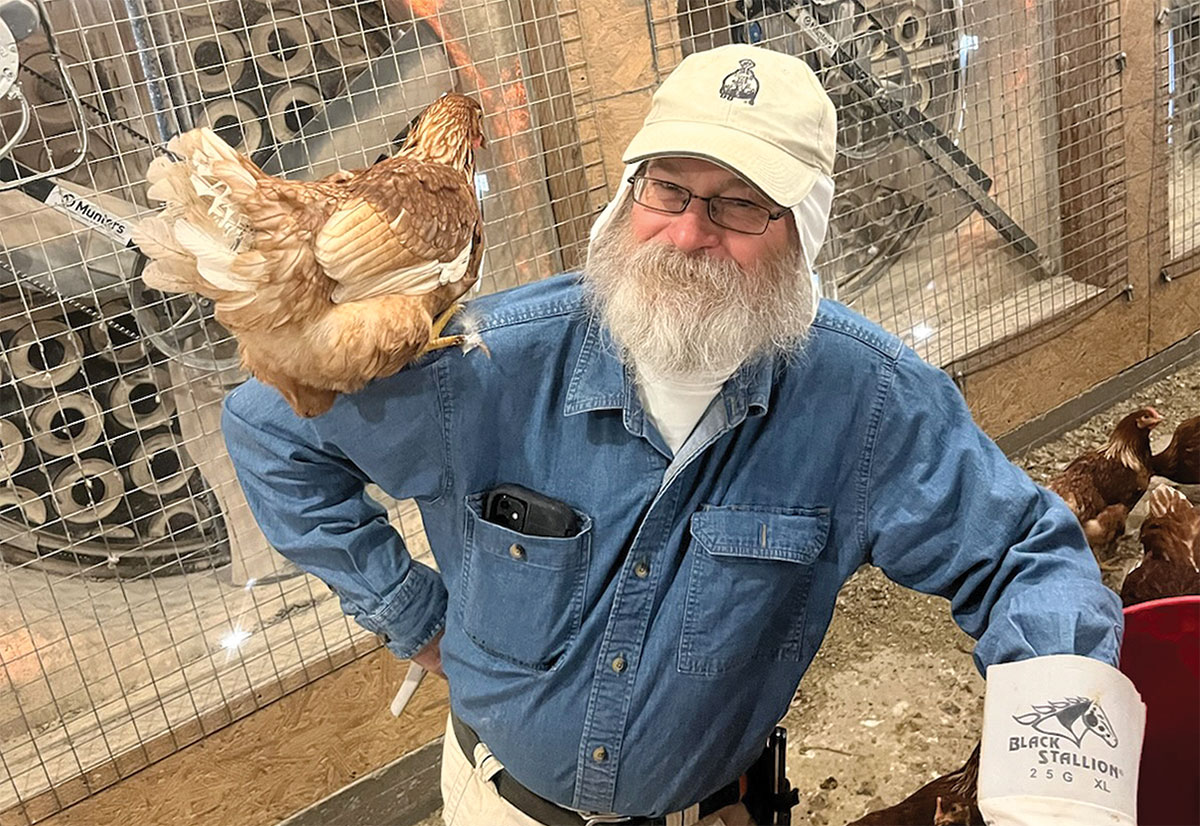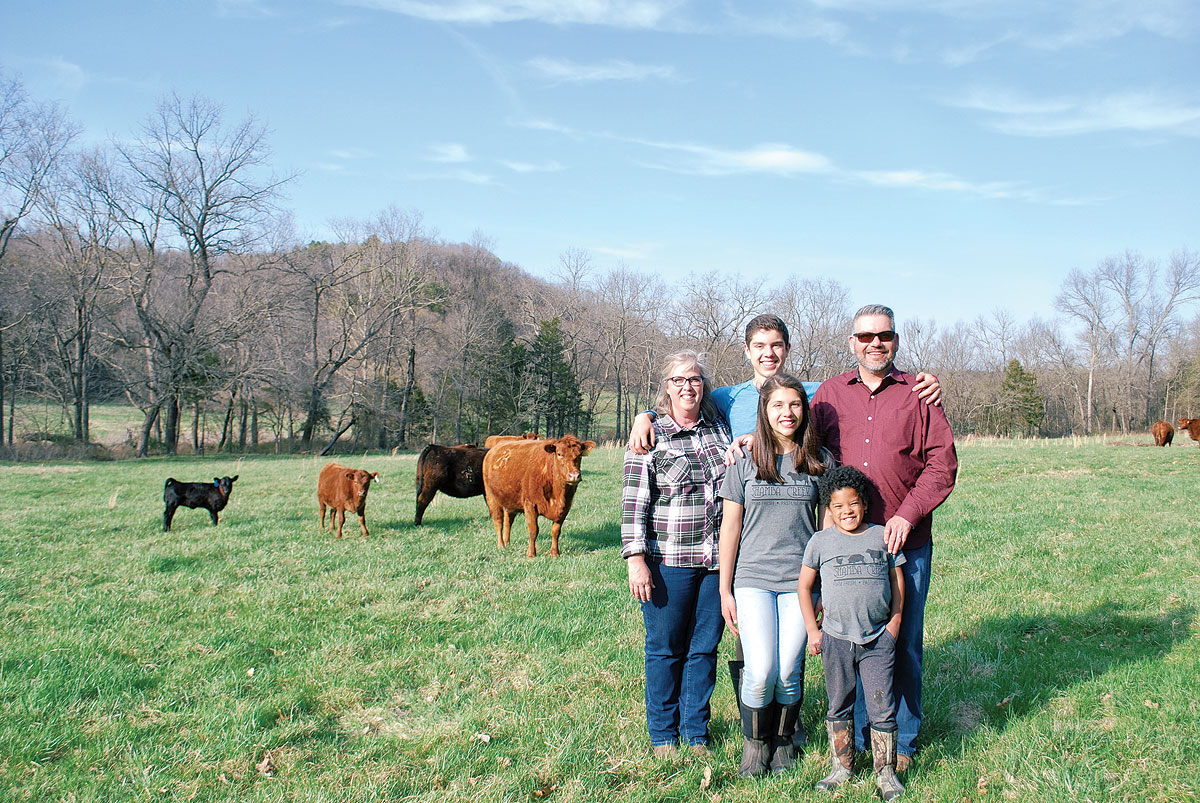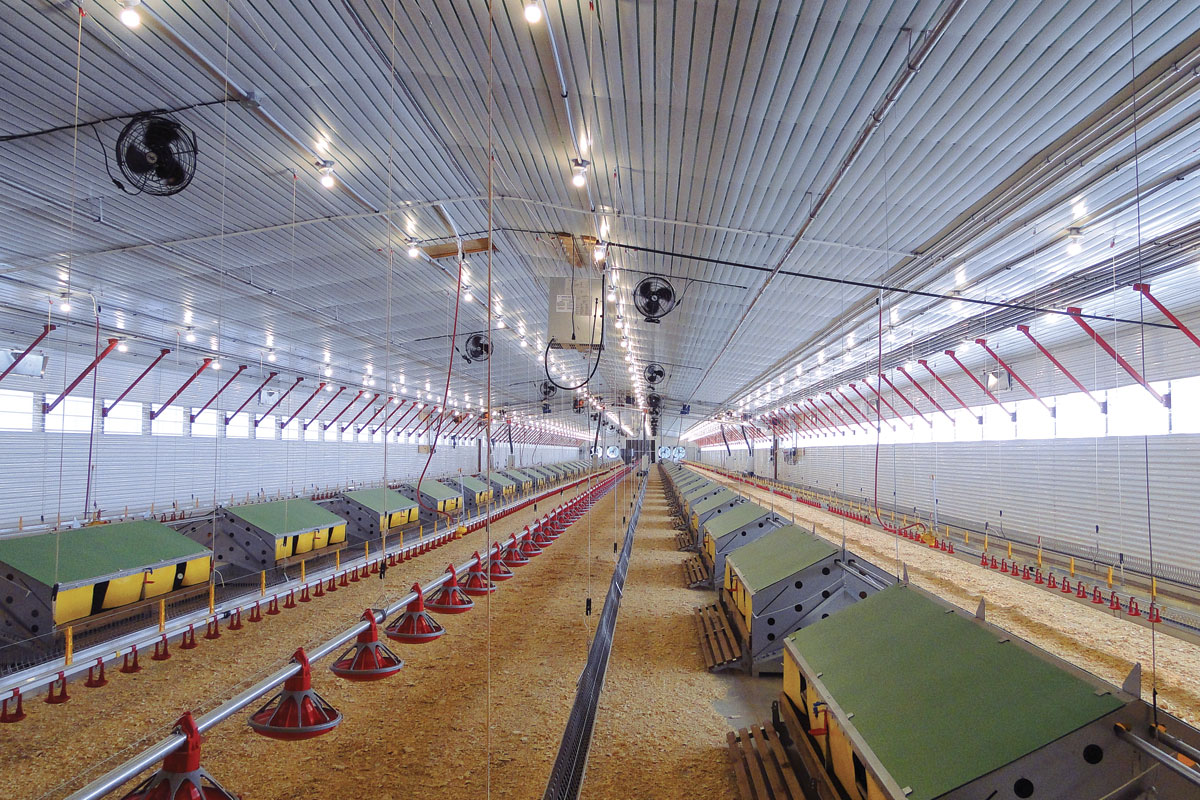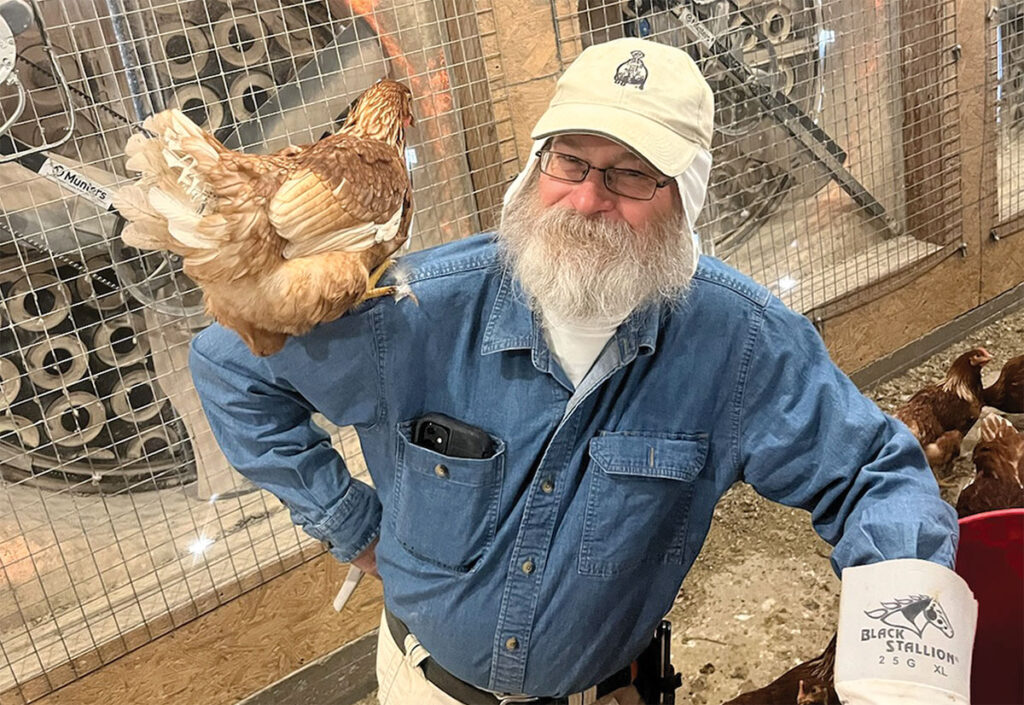
White Farms focuses on natural ways to manage its cattle and poultry operation
HARRISON, ARK. – When George White steps outside each morning, he doesn’t see nature as a competitor with which to do battle. Quite the opposite; he sees each part of nature as something to work with according to its purpose in the life cycle.
“Everything out there has a different purpose,” he said. “Even the weeds that most people use herbicides on to kill make life better for the next part of the life cycle.”
George is the next generation of his family to own and operate White Farms outside Harrison, Ark. He and his sons focus on natural ways of managing their land to get the best out of their 40-head herd of Angus cattle and, now, their estimated 40,000 chickens that they recently added to the farm.
George was born in Tampa, Fla., but agrees that most don’t think of Florida as a farming-rich state. His family moved to Arkansas in the late 1950s and started their Arkansas operations with one Hereford bull and 12 cows on land his grandmother purchased.
“That made the mortgage payment,” he said. “There’s no way to do that now.”
Finding one’s own way to work with nature and farm in a more organic style may go against what many farmers learn in University agriculture classes. Still, he says those methodologies will ultimately not prove successful. He appreciates working with universities for their knowledge, but uses his own farming methodologies and experience.
“If they farm like that, they will have the taxpayers paying their mortgage,” George said. “Big tech and the universities will not keep you on the farm. If it wasn’t for the lifestyle being very family-oriented, (most farmers would fail).”
While each farmer and their family determine what works best for their cattle and land, what George and his family are doing is working for them.
“My grass way outperforms others (that use chemicals), he said.
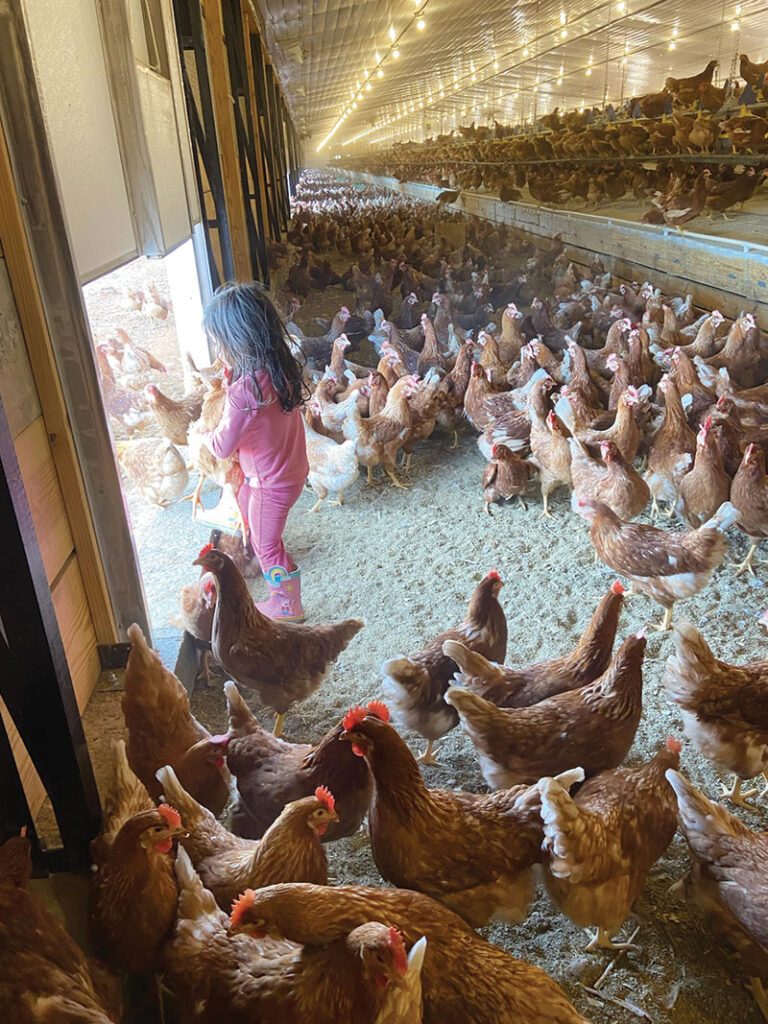
George and his family use the silvopasture method of land management, which he says saves them money and contributes to developing the best meat he can for his customers. Silvopasture uses all of the land, from the soil to trees to the grass to the waterways, to function together with the animals to create a symbiotic relationship.
“You can only spend a dollar once,” he said. “It’s bad enough that we have to buy the land at today’s prices. If the property has given us the resources we need, (why purchase) roots and minerals that already exist?”
George said he looks at what nature tries to grow on its own and plants things that work alongside or with what is already growing.
“We use what’s available to our advantage,” he said.
He also doesn’t remove growing things from the land because they’re there for a purpose. For example, some farmers clear their land of trees but he use them as shade for the animals.
“I’ve found my animals do better with shade trees,” he said.
Other commonly eradicated plants that grow naturally on his land include clover and some common weeds.
“The clover is high in nutrients. The weeds will provide things that the soil needs to thrive to grow other things that will feed the animals,” he said. “Animal life supports plant life. Nature will supply it for you.”
Working with what nature already provides is accompanied by strategic herd migration so that the land gets a chance to replenish what the cattle eat.
“When I move a cow every day, she eats what she wants every day,” he said. “If I don’t move them every day, then the first day she eats the good stuff, then the second day she eats the next best stuff. By the end of the week, all she has is garbage.”
Another method that lends itself to producing high-quality meat is the fact that the White family operates a closed herd with their own bulls.
“We don’t bring in bulls,” he said.
At one point, the family had about 250 head but over time, and through COVID, they cut back to an entirely Angus, 40-head herd. George says that Angus isn’t his favorite animal, but it works well in this area.
“The breed has better genetics,” he said. “We had discussed Wagyu, but I don’t like the flavor of the meat. What we do produces a better meat.”
His family has managed a variety of different breeds including Hereford/Holsteins, and they also used a Brahma bull in that herd.
As the farm and industry evolves, George is like most farmers that find ways to change up how they do things. For one, the family added chickens to their offerings.
“It’s a lot easier to sell an egg than a calf,” he said.
Like other farmers, the family is also learning to tell their story more and better.
“Farmers are not marketers,” he said with a chuckle. The family uses a Facebook page to spread the word about their cattle, which they can purchase shares of before processing. The White family uses another local business, Harpo’s Das Butcher, who will cut the meat however the customer wants it. The White family has had customers as far away as El Pason and Indiana, but most of the meat is sold locally.
“I prefer to sell local,” he said.

